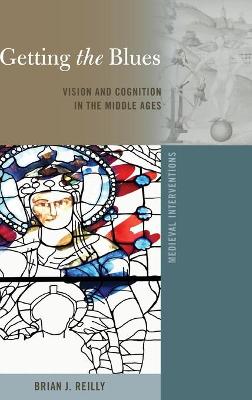Medieval Interventions
1 primary work
Book 12
Getting the Blues: Vision and Cognition in the Middle Ages is an interdisciplinary study of medieval color. By integrating scientific and literary approaches, it revises our current understanding of how people in medieval Europe experienced color and what it meant to them. This book insists that the past perception of the world can be recovered by joining timeless universal constraints on human experience (discovered by science) to the unique cultural expressions of that experience (revealed by literature).
The Middle Ages may evoke images of the multicolored stained glass of gothic cathedrals, the motley garb of minstrels, or the brilliant illuminations of manuscripts, yet such color often goes unnoticed in scholarly accounts of medieval literature. Getting the Blues restores some of the most important literary works of the Middle Ages to their full living color. Particular consideration is given to the twelfth-century Arthurian romances by Chretien de Troyes and the thirteenth-century Lancelot-Grail Cycle.
Getting the Blues engages debates within the humanities and the sciences over universalist and relativist approaches to how humans see and name color. Scholars in the humanities often insist that color is a strictly cultural phenomenon, eschewing as irrelevant to the Middle Ages recent developments in cognitive science that show universal constraints on how people in all cultures see and name color. This book contributes to the recent cognitive turn in the humanities and sheds new light on some of the most frequent and meaningful cultural experiences in the Middle Ages: the perception, use, and naming of color.
